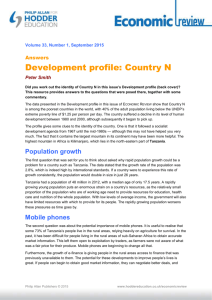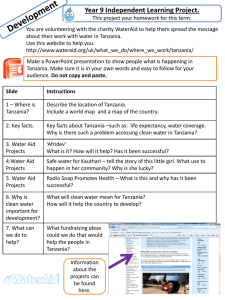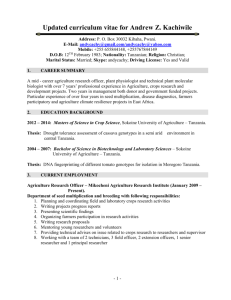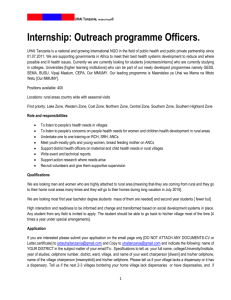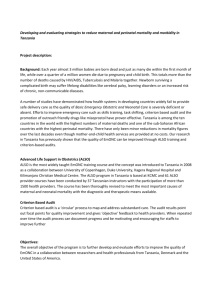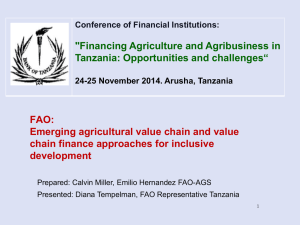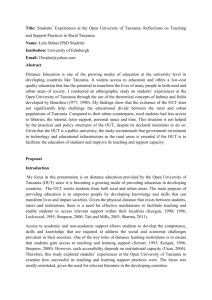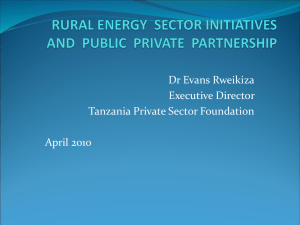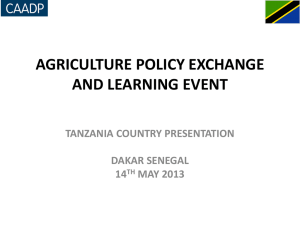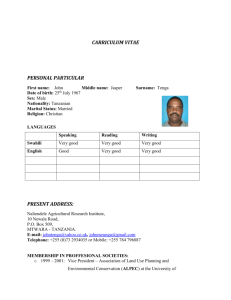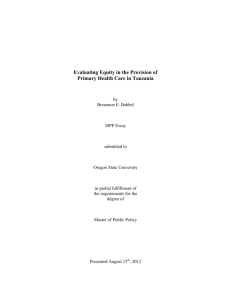Tentative absstracts + author affiliations - for Prof Sassi
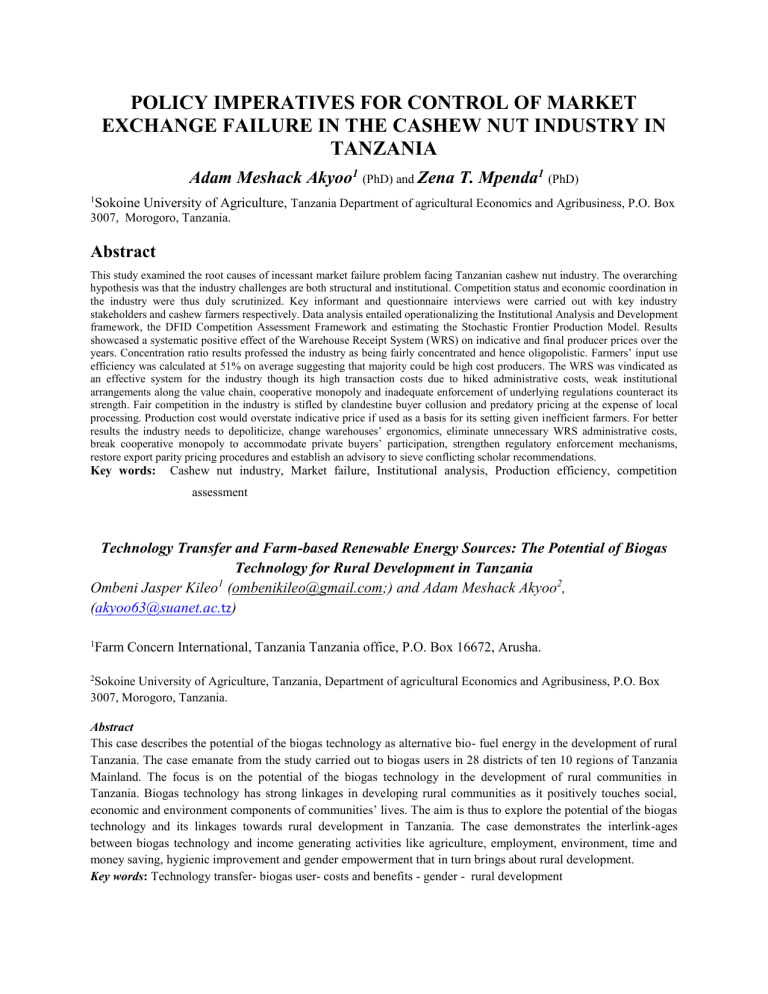
POLICY IMPERATIVES FOR CONTROL OF MARKET
EXCHANGE FAILURE IN THE CASHEW NUT INDUSTRY IN
TANZANIA
Adam Meshack Akyoo
1
(PhD) and
Zena T. Mpenda
1
(PhD)
1 Sokoine University of Agriculture, Tanzania Department of agricultural Economics and Agribusiness, P.O. Box
3007, Morogoro, Tanzania.
Abstract
This study examined the root causes of incessant market failure problem facing Tanzanian cashew nut industry. The overarching hypothesis was that the industry challenges are both structural and institutional. Competition status and economic coordination in the industry were thus duly scrutinized. Key informant and questionnaire interviews were carried out with key industry stakeholders and cashew farmers respectively. Data analysis entailed operationalizing the Institutional Analysis and Development framework, the DFID Competition Assessment Framework and estimating the Stochastic Frontier Production Model. Results showcased a systematic positive effect of the Warehouse Receipt System (WRS) on indicative and final producer prices over the years. Concentration ratio results professed the industry as being fairly concentrated and hence oligopolistic. Farmers’ input use efficiency was calculated at 51% on average suggesting that majority could be high cost producers. The WRS was vindicated as an effective system for the industry though its high transaction costs due to hiked administrative costs, weak institutional arrangements along the value chain, cooperative monopoly and inadequate enforcement of underlying regulations counteract its strength. Fair competition in the industry is stifled by clandestine buyer collusion and predatory pricing at the expense of local processing. Production cost would overstate indicative price if used as a basis for its setting given inefficient farmers. For better results the industry needs to depoliticize, change warehouses’ ergonomics, eliminate unnecessary WRS administrative costs, break cooperative monopoly to accommodate private buyers’ participation, strengthen regulatory enforcement mechanisms, restore export parity pricing procedures and establish an advisory to sieve conflicting scholar recommendations.
Key words: Cashew nut industry, Market failure, Institutional analysis, Production efficiency, competition assessment
Technology Transfer and Farm-based Renewable Energy Sources: The Potential of Biogas
Technology for Rural Development in Tanzania
Ombeni Jasper Kileo
1
(ombenikileo@gmail.com;) and Adam Meshack Akyoo
2
,
(
akyoo63@suanet.ac.
tz
)
1 Farm Concern International, Tanzania Tanzania office, P.O. Box 16672, Arusha.
2 Sokoine University of Agriculture, Tanzania, Department of agricultural Economics and Agribusiness, P.O. Box
3007, Morogoro, Tanzania.
Abstract
This case describes the potential of the biogas technology as alternative bio- fuel energy in the development of rural
Tanzania. The case emanate from the study carried out to biogas users in 28 districts of ten 10 regions of Tanzania
Mainland. The focus is on the potential of the biogas technology in the development of rural communities in
Tanzania. Biogas technology has strong linkages in developing rural communities as it positively touches social, economic and environment components of communities’ lives. The aim is thus to explore the potential of the biogas technology and its linkages towards rural development in Tanzania. The case demonstrates the interlink-ages between biogas technology and income generating activities like agriculture, employment, environment, time and money saving, hygienic improvement and gender empowerment that in turn brings about rural development.
Key words: Technology transfer- biogas user- costs and benefits - gender - rural development
